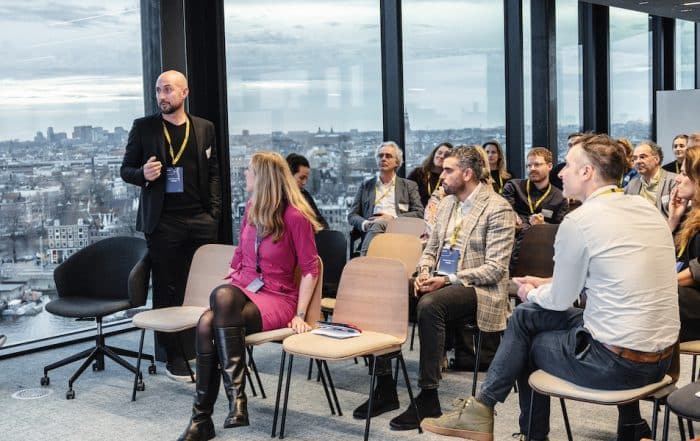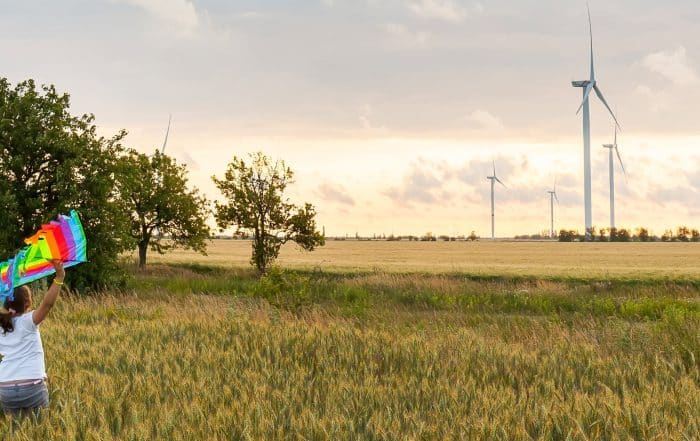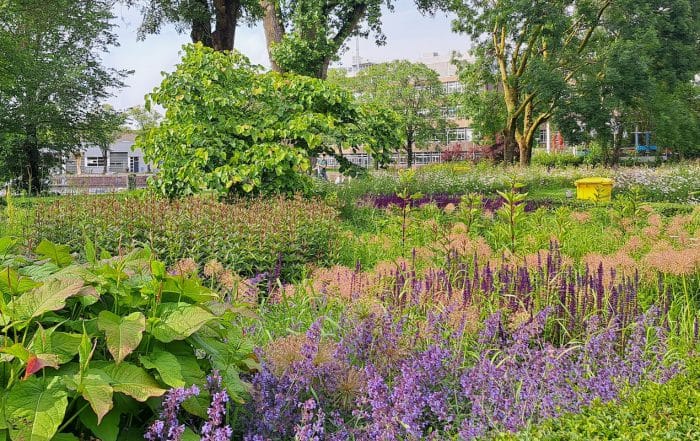Collaboration is essential in resolving grid congestion
The congested power grid is a very complex problem that not one party can solve. Grid congestion requires a collaborative approach. The first edition our new event series Grid Congestion Learn & Share kicked off with a masterclass: what makes grid congestion so complicated?
Just how serious are the problems on our power grid – and who is responsible for fixing them? Where does our energy supply stand today? By shedding light on such questions, Alliander’s region lead Paul van Engelen kicked off this event. There were no simple answers. Clearly, much remains to be done. Sometimes, legislation throws a spanner in the wheels of solutions. Ultimately, good cooperation is needed, between all parties involved. From the shared conviction that we can only achieve breakthroughs when working together.
Space for energy
A breakout session with Casper van Raaij and Floor hooge Venterink (Alliander), was about urban planning: how to divide the available space – below and above ground – for energy needs? Because plans for the energy system of the future literally require a lot of space. Think of parks with wind turbines, solar panels, district heating and laying thicker power lines. In this process, various stakeholders have very different interests. How to manage such discussions? And which issues should get priority?
The session demonstrated how issues can be perceived from different viewpoints. And that grid congestion is much more complex than it would first appear. Such insights are valuable in shaping the energy system of the future.
Flexible use of energy consumption
In another session, Hugo Niesing (Resourcefully) addressed opportunities for flexibility. By being smart about energy consumption, can we solve congestion problems? For example, by charging the electric vehicle fleet outside peak times? Some companies do not need a larger grid connection as a result.
Flexibilisation is especially effective when a business park has an integral overview of energy demand and consumption. This requires sharing information with each other. About who needs what capacity on the grid and when – or who might have excess capacity. The business processes of various companies might require electricity at different times of the day. By jointly mapping grid congestion, and flexibly matching supply/demand, peak loads can be reduced. This session made it clear that collaboration is essential.
Self-sufficient neighbourhoods
In several neighbourhoods, municipalities are conducting pilots to experiment with possible solutions to grid congestion. In the third breakout, Gerben Vermeulen (Spectral) and Järvi de Vlugt (Municipality of Almere) talked more about this. For example, about the Republica housing project in Amsterdam-North. Here, the entire community (residents and businesses) share one grid connection. Thus, they do not have their own energy meter. The goal: extremely local energy use, lower rates and lower costs.
In Almere, there are plans to build the BalansWijk. The ambition here is to have 30,000 new homes largely self-sufficient in their electricity supply. So that the neighbourhood would not add to the strain on the power grid. The completely different approach that such a neighbourhood demands, would require approaching the issues from an entirely new perspective. By looking and acting differently.
What’s next for Grid Congestion Learn & Share?
There is a lot that can be done to relieve the strain on the power grid. Keeping connected with each other remains important, so that we can work on all possible solutions as quickly as possible. The next edition in our event series Grid Congestion Learn & Share, on September 16th, will be about our exploration: Energy transition through local vigour. Would you like to be a part of this? Let us know by emailing Claire Teurlings.
We’re organising the Grid Congestion Learn & Share event series in collaboration with Caroline van der Kooi of the Centre of Expertise City Net Zero and Judith Veenkamp of Waag Futurelab.
24 June 2024
Read more about
Contact us
Want to keep up to date?
Get the best regional news and events (in Dutch) via the Board Update newsletter
Share this news
Want to keep informed?
Follow us daily on LinkedIn and sign up for the Board Update newsletter.
Read more
- What is the Amsterdam Metropolitan Area’s position on critical raw materials? ...
- Preparations for the National Zorginnovatieprijs 2026 by Zorginnovatie.nl are underway, and registration ...






